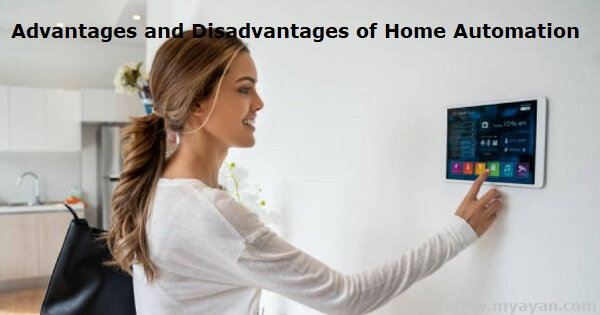Living in a smart city comes with many perks; if you have decided to make efficient and smart use of technology, why not start with home automation. It’s the age of smart devices like Google Nest and Amazon Echo, and households have welcomed the idea of transforming their lives with smart technology and the internet of things. The home automation business is predicted to touch US$ 70,126.7 Million by 2026. There are more ways to predict the advantages and disadvantages of home automation systems in terms of security, convenience, and costs.
Americans just love to use gadgets, which is why around 22 million homes either use IoT or smart technology to make life easier. According to a report by CTA, 83 million households have adapted to home Automation, and the numbers are expected to stagger in the next few years. The following Advantages of Home Automation systems are probably why your humble haven should have the best of smart technology.
Ease of access is a huge advantage if you have a smart home. If you forget to turn off your geyser after a warm shower or leave the AC remote somewhere and can't find it, you can make things work remotely via the voice-activated system or an app. Home automation technology is an effective way to get things done easily, even if you are not at home.
You can save more on your electricity and utility bills as your home is equipped with automated monitoring systems that let you use the technology efficiently. Most smart devices are based on human technology and power off automatically after sensing your absence. So, from heaters to Air conditioning systems, you contribute to save energy sources.
Doing basic things is cumbersome for people with disabilities. One of the greatest advantages of home automation is you can get things easily. You can turn lights or fans on/off, close the blinds or even lock your home from the comfort of your couch. Home automation benefits you, especially when you live on your own.
Advanced security systems are one of the main reasons why homeowners opt for automation. Technology is your best option, especially when you live in a neighbourhood with a bad reputation. The electronic locking mechanism generally operates through biometrics and voice recognition. Home automation doubles your security against thefts and break-ins.
Most smart homes have internet-based security systems which have their security apps. You can receive alerts on your smartphone about any mishaps or incidents in an emergency and take remedial actions to circumcise the damage. From fire alarms to panic buttons, a smart home is the way to protect yourself and your family members from unknown dangers.
No matter how good and efficient a system is, it’s always better to do your homework. Considering the Disadvantages of Home Automation before is what you should do depending on several factors such as costs and technological limitations.
Upfront costs of equipment and installation are the leading disadvantages of home automation systems. Although smart technology can help you save on your bills, it's the initial cost that can leave you surprised. The average cost of automating your simple home ranges between $2,000 and $7,000. The cost also varies based on the type and structure of your home, which can easily jump to around $20000.
Smart Homes are based on the internet technology; it’s vulnerable to hacking. In addition, most systems require password-based authentication, and in case your credentials are leaked, anyone can misuse this technology and compromise your security. Getting started with private WiFi is also costly to add more to the pain.
The maintenance costs can be high as you may also need a professional to repair and look after your system from time to time. Make sure maintenance is done properly by a professionally licensed agency. If your system is not installed properly, you may have to deal with many problems, from device malfunctions to system failure. If it happens, get ready for more expenses ahead.
Devices in an automated Home require a constant power supply, which must be uniform and uninterrupted. Electricity is next to the internet to make your home perfectly smart. Before installing the home automation devices, ensure that your home is not affected by power outages or fluctuation, which can damage smart home appliances or even put your home into a lockdown.
Conclusion on Pros and Cons of Home Automation Systems
Several agencies are into the business of Home automation with years of experience and expertise. You can find more options to turn your home automated with devices and smart appliances from the tech giants like Google and Amazon. But what you need to do is consider the Pros and Cons of Home Automation Systems before taking the big decision. Cost and unprecedented risks are the main factors you need to find the answer to.

Home automation refers to the automated and electronic management of home elements, activities, and appliances. To put it another way, you may easily regulate your home's utilities and amenities over the Internet to make life easier and safer while also saving money on household expenses.
Lighting control, air conditioning, outdoor lawn irrigation, kitchen appliances, and security systems are some of the most popular applications for home automation.
1. Outfit your home to suit your lifestyle
2. Reduce maintenance costs.
3. Indoor system control
4. Security
5. Safeguard property
6. Energy savings.
One of the primary drawbacks of automated technology is its high initial investment in equipment (automated systems may cost millions of dollars to develop, fabricate, and install), greater maintenance requirements than a manually driven machine, and a tendency to be less flexible.
The future potential for home automation systems will be to make houses even smarter. For example, homes may be linked with sensors such as motion detectors, light sensors, and temperature gauges, which can turn on or off devices automatically based on circumstances.